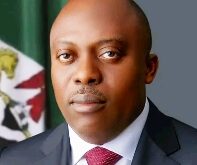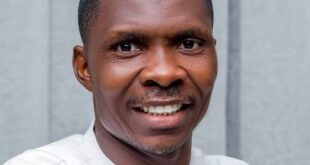By Young Erhiurhoro
I was overwhelmed when I read the 1960 Independence Day speech of Nigeria’s first Prime Minister, Alhaji Abubakar Tafawa Balewa. The very first speech that removed the British Union Jack and installed in its place the most awaited Nigerian flag of green, white and green.
As I read through the speech, I was mesmerized to see the joy inherent in the hearts of many Nigerians especially the political class. It was a speech laced with encouraging words, innovative ideas, visionary policies and programmes, large dreams and high hopes. In fact, the wits and the grammatical demeanour of the speech were second to none.
The jubilation and festive celebration in the hearts of our founding fathers as their struggles and labour were not in vain, but practically yielded positive results was glaringly embedded in the speech. The political class was really happy for Nigeria to be a sovereign nation.
However, there was more to this celebration than what the ordinary eyes could picture. The joy of the political class, which in this case held the seat of governance in the country wasn’t on the mere fact that we had grown old enough to control our own affairs; but on the opening and opportunity to seek for power and fame in their own myopic way.
This we must understand from what came after the Independence Day celebration in 1960. The Nigerian political scene became bastardized eventually with immaturity and senseless decisions which now gave birth to the myriad of unending troubles and problems in Nigeria today.
Unfortunately, Nigeria as a sovereign nation is 61 years old. This is truly worthy of celebration amongst Nigerians given that we have grown thus far.
Nigerians and Africans in general are core traditional people that respect old people in their families and communities. We as black people respect old age as a gift from God. In fact, a man of 61 years old in Nigeria is no longer a young chap but somebody who is old enough to be a grandfather and also a family head. He’s somebody that needs to be respected by the younger ones in the society. If such a man dies, his burial would be celebrated by his kinsmen without much mourning because the man was quite old.
On the other hand, if a man of 61 years old hasn’t married and produced children of his own, had his own immediate family, a home where he rests his head at the end of the day, then something is wrong with such a man either physiologically or psychologically.
Such a man is no less than an insane person or a complete infidel. By natural arrangements or physiological standard, if a child of three years is still learning to sit, then something is wrong with such a child. Any child of three years is expected to walk and even learn to talk. Truly, human development follows stages – from childhood to adulthood, any of these stages that is missed in the process of human growth and development is as a result of ill-health or malfunction of body systems. This may result in different health challenges like imbecility, stroke, mental sickness, sickle cell aneamia and many others.
Symbolically, the picture of human growth and development painted above is nothing but the true picture of Nigeria as an independent nation. As one writer remarked about the situation of Nigeria some time ago, that Nigeria is only independent in name, to belong to world unions and attend international meetings. But in the real sense, Nigeria is dependent in virtually everything you can name.
I strongly believe that by now, the spirits and souls of the founding fathers of this nation would be wailing and crying profusely wherever they may be, to have fought the British government for independence when they knew fully well that, our foundation wasn’t yet strong enough to run the affairs of this country by ourselves. May be, they are saying at the moment, “How we wish the British government can again colonize Nigeria forever.” Well, it’s just too late to cry when the head is already cut off.
What are we really celebrating in Nigeria at 61? Is it the high level corruption in our government? Do we even know that, this is the bane of Nigeria’s political and economic woes?
From this short discourse, Nigeria is not well or healthy at all. Nigeria is completely sick from head to toe without any hope of cure or treatment. Which hospital in Nigeria, private or public is well equipped and sophisticated to treat Nigeria of this deadly sickness? If President Buhari can seek medical care in a London hospital, then ironically, Nigeria is still in nursing care in the hands of the British government.
In fact, I wouldn’t want to go to the extent of prophesying that, the sickness of Nigeria is incurable. Our health officers and scientists have not been able to produce vaccines for the health challenge as have been done for the deadly Covid-19 virus.
Without doubt, the problem of Nigeria started exactly 61 years ago. Before this time, there was no name like ‘Nigeria’ on the map of Africa or the world. What we had were tribes, ethnic groups, clans and villages. The Hausas/Fulanis knew themselves as people of one tribe and one ethnic region. It was the same with the Yorubas, Igbos and the Urhobo people. Then, life was peaceful and joyous with them.
In the pre-colonial times, if a Hausa man migrated to a Yoruba community, he was regarded as a foreigner or a visitor. He was treated with much hospitality and generosity. All we had then were traditional leadership and gerontocracy. It was leadership by kings, elders and family heads. There were no wars between Hausas and Igbos or between Urhobos and Isokos during that era or period as we have experienced and continue to experience after 1960.
However, our problem began when we agreed with the British Colonial masters that they should merge all these tribes, ethnic groups, clans and villages together to form a whole entity because we are located in the same geographical zone.
How will people of different cultures, traditions, histories, identities, tribes, ethnicity, religions be able to come together to form a nation with such diversity? Can there be unity, peace, fairness, equity and justice amongst these people of diverse culture, religion, traditions and beliefs as it used to be when they were in their distinct clans or villages?
These questions were what our founding fathers couldn’t take time to provide answers to before they hastily took the decision that merged us together as a nation, because of their urge to seek power and fame. Today, we are all paying the price of those hasty decisions through our noses. The centre could no longer hold as envisaged or proposed by our founding fathers. The saying in the lips of minorities who are carrying the broth of marginalization and political oppression in the country today is, “to your tents, oh Nigerians!”
Conclusively, even though I don’t want to delve into much of our past which has formed the bulk of our history as a country, I want to conclude this short piece by advising the Nigerian leaders at the moment that, even as we can’t change this name ‘Nigeria’ in a hurry, let’s us go back to true federalism as a form of government that is best suited for a country with such diverse and different peoples, tribes, ethnic regions, religions, cultures, traditional beliefs etc as ours.
On the other hand, so many Nigerians have been agitating for restructuring as the only solution or treatment available to cure the disease or sickness of Nigeria. Restructuring as a political tool is of different kinds. On this note, I’m of the view that we should go back to regional government as it was the practice before 1960. Obviously, regional government will help to solve so many problems and political challenges confronting the country at the moment.
The benefits or advantages of regional government are numerous. I’m convinced beyond doubt that regional government is the government that is mostly suitable for a country like Nigeria. Regional government is the true definition of Democracy as the government of the people, for the people and by the people. I therefore wish Nigerians happy 61st Birthday.
Young Erhiurhoro;Kjc is a reporter and a member of the Urhobo Historical Society
 PH Mundial – Port Harcourt Online Newspaper News Across The Region
PH Mundial – Port Harcourt Online Newspaper News Across The Region





